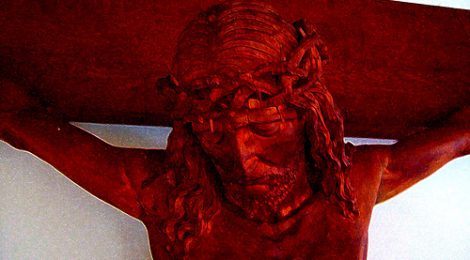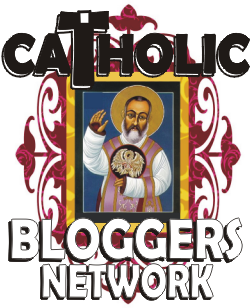
Veneration and Adoration

By: Randy OHC
Veneration has to do with respect and honor, while adoration belongs to the God we worship in love. All of us show veneration to persons and objects to one degree or another. We Catholics have been accused of worshiping saints, but many have mistaken our veneration of saints for worship. The Priest raises the Gospels at every Mass over His head in veneration; we venerate images of saints as the ideal example of faith and virtue. Veneration is within all of us, only discern what we venerate.
To the Protestant soul I might ask what is venerated within your worship, even if unconsciously? Private interpretation of the scriptures is highly prized; various reformers may be venerated, not as image but in speech, with Martin Luther as the prototype. While Catholics venerate the altar as the central spot of the Holy, where worship is offered to God. Protestants venerate the pulpit. But what sacrifice is offered, but a man’s rendering of the holy books?
If Catholics could be accused of rendering too much honor to people or images, Protestants could find the same danger present in their heightened weight placed upon lecture, or sermonizing.
Sermon has taken the place of sacrifice. Without the shedding of blood there is no remission of sins. The Holy sacrifice where Jesus Christ is offered up in an unbloody fashion for the sins of the world is the pure act of worship and adoration in corporate worship.
That is worship rendered to God alone, made flesh before our very eyes. Only God can be worshiped and adored! If a human being was paying worship to something other than God, it would not be worship at all, but rather false worship or idolatry. Idolatry is absence.
We are all oriented toward worship as baptized Christians, hard wired for adoration. The closest thing a protestant worship service could come to worship and adoration of God is in corporate singing, to the God that goes unseen. A praise band does not necessitate this; they do not bring the incarnation even if everyone likes the tune, yet God may be sensed amongst them.
If Jesus Christ is present in the flesh under the species of bread and wine and one remains in unbelief or aversion to the God who is than what is being offered? That is if our separated brethren refuse to worship Jesus Christ in the sacrifice of the Mass, and they go to church to worship what are they worshiping? Are they worshiping at all?
I’ve heard some Protestants reason, rightly so, saying, ‘What’s the point?’ I could do all this stuff in my home, sing, pray, read the bible, where two or three are gathered in my name they might say.
At best they are sharing in a common experience that is socially beneficial for them; encouragement even, fellowship, building one another up in the faith. This is great and needed. At worst, idolatry is taking place as absence, placing the means above the substance of God, knowingly or unknowingly through song and lecture. But this, I think, may not be fair. That could be likened to accusing Catholics for our overzealous zeal for objects or people. What must be present amongst their worship is disordered attention to these things, simply because they are worshiping in a vacuum. I once heard a Lutheran church service described as Catholicism with the heart torn out, but the same could be said of all Protestant services.
The body of Christ may be built up to one degree or another at a protestant meeting but I could hardly call it worship. Worship can be given to God alone, not to one another. The Catholic Mass is all about worship from start to finish to the God that makes flesh before our very eyes. Behold the Lamb of God who takes away the sins of the world.
My separated brethren, behold!
